A winning proposal for providing medical billing services should be comprehensive, clear, and tailored to the specific needs of the potential client. Listed below are some recommended characteristics and components that should be included:
1. Executive Summary: Provide a concise overview of your proposal, highlighting key points such as your company's expertise, services offered, and unique selling points. OMIT PRICING!!!
2. Company Background: Introduce your company, including its history, experience in medical billing services, relevant certifications, membership in associations, and any awards or recognitions.
3. Experience and Qualifications: Include the number of years in operation, other clients in their specialty, and your team’s qualifications.
4. Understanding of Client Needs: Demonstrate a clear understanding of the potential client's requirements and challenges in medical billing. This shows that you have done your research and are prepared to address their specific needs. You should have discovered why they are shopping. They may be experiencing issues such as financial challenges or other business problems, such as employee turnover.
5. Proposed Solutions: Outline all the services you will provide, including medical coding, claims submission, payment posting, denial management, provider enrollment, patient billing, and handling of all patient phone inquiries. Highlight any innovative approaches or technologies you will use to improve efficiency and accuracy. This is where you may prevent future litigation.
6. Team Expertise: Highlight the qualifications and experience of your team members, including certified medical coders and billing specialists. Emphasize any specialized training or expertise relevant to the client's specialty or specific requirements. Who will be their contact with your company?
7. Value Proposition: How will your services solve client pain points and improve their revenue cycle results? This section should show that you are not an additional cost, but an asset who will provide improved results.
8. Quality Assurance Processes: Describe your quality assurance procedures to ensure accuracy and compliance with regulations (such as HIPAA), and the timely processing of claims. This reassures the client of your commitment to delivering high-quality services.
9. Technology and Infrastructure: Detail the technology platforms and software you utilize for medical billing, emphasizing features such as secure data transmission, electronic claim submission, and real-time reporting capabilities.
10. Compliance and Security Measures: Highlight your adherence to industry regulations and standards, for example, complying with escheat laws. Explain your compliance program to ensure the confidentiality and security of sensitive patient information, as well as coding accuracy. Inform them of your disaster recovery plan. Additionally, list the name of your Errors and Omissions insurance company and any other relevant coverages, such as business interruption insurance.
11. Performance Metrics and Reporting: Highlight your track record of success, and include metrics:
- Clean claims first pass rates
- Denial reduction rates
- Turnaround times
- Target for Days in Receivables
Provide sample standard reports and inform them of your ability to customize reports to their specific needs.
12. Cost and Pricing Structure: Provide a transparent breakdown of your pricing structure, whether it is a percentage of collections, a flat fee per transaction, or a combination, including setup fees, and any additional charges such as monthly minimums, patient statements, enrollment services, or any additional services or customizations. Consider offering flexible pricing options to accommodate the client's budget and volume of services required. IMPORTANT NOTE: Know your “no lower than” number.
13. Implementation Plan and Transition: Provide a detailed plan for integrating your services into the client’s practice, including an onboarding plan, schedule, and a checklist. Explain the transition process to minimize disruption to their staff and patients.
14. Case Studies or Client Testimonials: Include examples of successful projects or positive testimonials from satisfied clients to demonstrate your history of delivering results in medical billing services. Offer to provide references upon request. Make sure the references are in their specialty or locality.
15. Professional Presentation: Use a professional layout, clear formatting, and error-free writing. Proofread to death. Remember, appearance does matter.
Things to Exclude:
1. Irrelevant Information: Avoid including irrelevant details or generic content that does not directly address the client's needs or requirements.
2. Overly Technical Jargon: Although it is important to demonstrate your expertise, avoid using overly technical language that may confuse or overwhelm the client. Keep the language clear and accessible. Many prospects do not know what EOB, COB, etc., stand for. You will not impress a doctor with how many acronyms you know.
3. Ambiguity: Be clear and specific in your proposal, avoiding vague statements or promises. Clearly outline the services you will provide and how they will benefit the client. Never offer guarantees about claim success rates, collections percentage, or increases in cash flow, for example. They can come back to bite you.
4. Sales Hype: Maintain a professional tone and avoid extended sales pitches. Let the facts and data speak for you
5. One-Size-Fits-All Approach: Tailor your proposal to the specific needs and preferences of the client rather than using a generic template. Personalization demonstrates your commitment to understanding and addressing their unique requirements.
By including these components and excluding irrelevant or ambiguous information, you can create a winning proposal that effectively communicates your capabilities and persuades the client to choose your medical billing services.
And remember, some of the best clients I ever had were the ones I never got.
Dave Jakielo is an international speaker, consultant, executive coach, and author, and is president of Seminars & Consulting. Dave has been helping companies grow and improve their profitability for over four decades. Dave is a past president of the Healthcare Business Management Association and the National Speakers Association, Pittsburgh Chapter. Sign up for his FREE weekly Success Tips at www.Davespeaks.com. Dave can be reached via email at Dave@Davespeaks.com or by phone at 412-921-0976.
